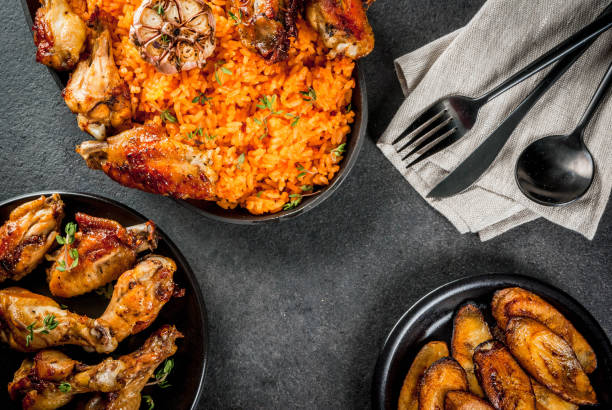Unveiling the Richness of Ghanaian Cuisine: A Journey of Flavor and Technique
Ghanaian cuisine, with its unique blend of flavors and techniques, is a treasure trove waiting to be discovered. Let's embark on a culinary journey through Ghana, exploring the rich traditions and innovative approaches that make this cuisine a delight for food enthusiasts worldwide.

The Vibrant Flavor Palette of Ghanaian Cuisine
Ghanaian cuisine is a symphony of tastes and textures, with a flavor palette that is as vibrant as it is diverse. At the heart of many dishes are staples like yam, cassava, plantain, and maize. These ingredients are often paired with a variety of proteins such as fish, goat, and chicken, and a rainbow of fresh vegetables, herbs, and spices.
The Power of the Pot: Traditional Ghanaian Cooking Techniques
Ghanaian cooking techniques are a testament to the culture’s resourcefulness and respect for tradition. Many dishes are slow-cooked in clay pots over open fires, a method that infuses the food with a unique, earthy flavor. Steaming, boiling, and frying are also common techniques, each lending a different texture and taste to the ingredients.
Fufu and Soup: A Staple of Ghanaian Dining
Fufu, a smooth dough made from pounded yam, cassava, or plantain, is a common accompaniment to many meals in Ghana. It is typically served with a flavorful soup or stew, such as groundnut or palm nut soup. The process of making fufu is a labor of love, often involving the entire family.
Jollof Rice: A West African Delicacy
Jollof Rice is a popular dish not only in Ghana but across West Africa. This one-pot dish combines rice, tomatoes, onions, and a mix of spices, along with meat or fish. Each region has its take on Jollof Rice, and in Ghana, the dish is often enjoyed with shito, a spicy black pepper sauce.
Innovations in Ghanaian Cuisine
While traditional Ghanaian cuisine is a marvel in itself, innovative ideas are pushing the boundaries of what is possible. Chefs are experimenting with new techniques and ingredients, creating fusion dishes that blend traditional flavors with global culinary trends.
- Ghanaian cuisine is rich in grains and legumes, making it a great option for vegetarians and vegans.
- Many Ghanaian dishes are naturally gluten-free, as they rely on yam, cassava, and plantain instead of wheat.
- With a focus on fresh, locally sourced ingredients, Ghanaian cuisine aligns well with the farm-to-table movement.
In conclusion, Ghanaian cuisine offers a wonderful exploration of flavors, techniques, and traditions. Its versatility and adaptability make it a fascinating area for culinary exploration, and its growing recognition on the global stage is well-deserved. So, why not take a leap and try cooking a Ghanaian dish today? You might just discover your new favorite cuisine.




